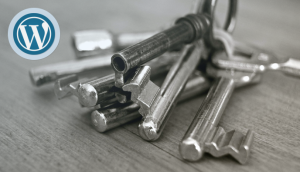As WordPress users, and site owners, it’s our responsibility to properly maintain our sites. Whether we do it ourselves or hire a company to do it for us – either way, it’s crucial to do these regular tasks.
Backups
This might be the most important of all ongoing maintenance that all site owners should be doing. Backups are essential to ensuring you can always revert your site to a previous version if something goes wrong. One tool we’ve been enjoying recently is WP Time Capsule. It is free and works as incremental backups, similar to Apple’s Time Machine.
Plugins
We’ve all done it – installed plugins which wind up not being used. As part of your ongoing maintenance, you should delete those plugins. Plugins which are disabled do not call home, which means that they won’t notify you of updates. So delete them and don’t risk security.
Updates
Speaking of updates – next up is making sure that your site is always up to date. Every time you log into your website, look to see if there are any updates for themes, plugins and even WordPress. If so, run a new backup of your site and then run the updates.
Passwords
If you are the sole user on your site then once a year we recommend changing your password. If you have multiple users on your site, then we recommend using the plugin, Force Password Change, which will force all users to change their passwords. Use it once a year as well.
Security
Security is something that everyone should be concerned about it, all the time. Fortunately, there is no shortage of security plugins in the ecosystem. Two popular plugins that take very different approaches are Wordfence and SecuPress. Both will keep an eye on your site, even when you’re not.
Spam
Comment spam is a nuisance. We all deal with spammers and spam bots. But that’s why plugins like Akismet exist, to help keep the spam down. Once a month (at a minimum) go through all spam and clear it out.
Testing
So far much of what we’ve shared has been backend tasks. So how about a quick front end task. Testing is extremely important. How embarrassing would it be if you had a contact form or a call to action which didn’t work?
So navigate your site and try forms, commenting on blog posts and following calls to actions. Make sure they all work properly and do what you want them to do.
Optimization
Optimization is a word that covers a wide range of things. For example, you should be optimizing your database. That means cleaning up the SQL tables. This can be done manually within PHPMyAdmin, or you can install a free plugin like WP Optimize, which will do it for you with minimal efforts – and on a schedule if you want.
Optimization also means compressing your images. Making sure they look good, but take up as little space as possible. There are many image compression plugins out there, but the best results we’ve seen come from Imagify and JPEGMini.
Uptime
Uptime is important, but are you monitoring yours? Services like Pingdom can tell you when a site is down, running slow and how long the site is down.
If your site is constantly going down, it could be the fault of your host. For example, shared hosting services are more prone to downtime.
404 Errors
Hopefully, your site is connected to Google Search Console. If not, get it connected right now. Stop reading and then come back when you’re done.
GSC will tell you when there are 404 errors on your site. A 404 error is when a URL is not found. That not only hurts user experience but can also impact your site’s SEO.
So make it a priority once a month to fix any broken 404 errors.
Broken Links
The last tip we want to share is to fix broken links. Just like 404 errors, if you send someone to a broken URL it’s bad for user experience. There is a free plugin which can scan for broken links. Use it once a month, but be sure to completely remove it when you’re done. Because it is resource intensive and can slow down, or crash a site.





Chad Warner
31 Aug 2017Nice job covering the major areas of WordPress maintenance! You’re right to emphasize the importance of backups; having a known good backup is an essential part of maintenance.
I wholeheartedly agree with your opening statement: “Whether we do it ourselves or hire a company to do it for us – either way, it’s crucial to do these regular tasks.” I say the same thing to site owners: someone needs to do it, whether that’s you or us.
One of the reasons we created our WordPress Maintenance Plans is because most businesses don’t have the expertise or time to maintain their own site.
Thanks again for the practical post!